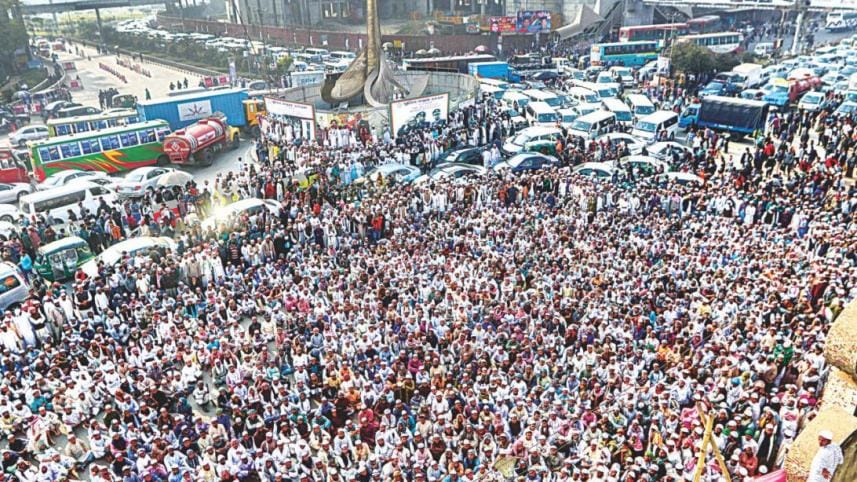Protests cannot cause public suffering

We simply cannot comprehend how, on Wednesday, factions of Tabligh Jamaat were allowed to immobilise a busy section of the capital city—and thus in effect its entirety—for hours on end, including the country's biggest airport. The horrific stories of those stuck in the traffic are proof of the suffering that was caused as thousands of commuters were caught off guard, not to speak of the disruption of a large number of international and domestic flights. The virtual siege of the Airport Road was laid in order to prevent a religious scholar from abroad from attending the Biswa Ijtema.
Whatever may be the grievances of the faction, blocking off such a busy part of the city is completely deplorable. The international airport is undoubtedly a crucial element of our city and the entrance to the country—as such, it should be a high-security zone. Instead, we saw total collapse of law and order. What is the justification of the law enforcement authorities to not act as these people caused distress to public life for such a prolonged period of time? Why was this not pre-empted by our security forces, given that the clash between the two factions over allowing the scholar entry to the Ijtema was a known issue?
We recognise the right to free assembly of every group in this country. But, that right cannot infringe on every other fundamental right of other citizens as it did on Wednesday. In this context, we urge the government to enact appropriate laws to bar assemblies or gatherings that cause public suffering and make them punishable, without curtailing the freedom of assembly. Designated public spaces would be more appropriate for such assemblies, instead of taking the public hostage in the name of protests.
 For all latest news, follow The Daily Star's Google News channel.
For all latest news, follow The Daily Star's Google News channel.
Comments